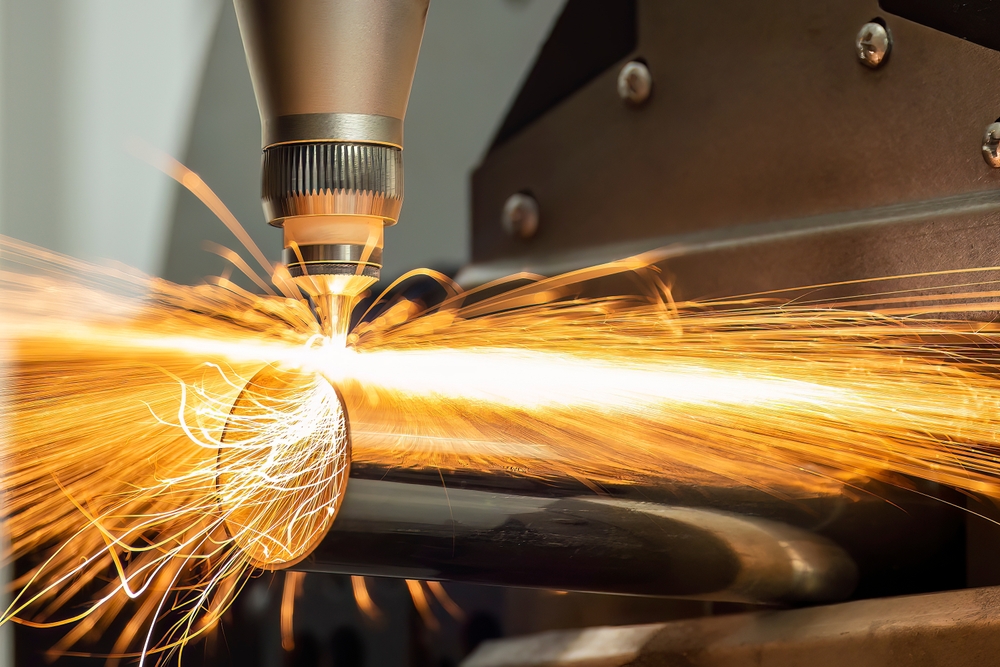This year, the advanced manufacturing industry has been a beacon of innovation, adaptability, and resilience, and at the New Jersey Innovation Institute (NJII), we and our partners have been at the forefront of this transformation.
Pioneering Materials for Extreme Environments
One of the defining challenges of 2024 has been addressing the need for materials that can withstand extreme environments. From aerospace to defense and energy sectors, the demand for high-performance materials has never been greater. At NJII, our teams are working with leading advanced manufacturing equipment to test new materials, including the work on standards development. Whether part of the ASTM F42 standards for metals additive manufacturing (AM), or developing methods of testing in IPC subcommittee D-67C-AT for additive manufacturing electronics (AME), the team is pushing technology forward to ensure further adoption. Organizations are increasingly adopting multi-material solutions to achieve novel applications and performance. This trend is expected to grow as hybrid materials open new possibilities for customized applications.
Breakthroughs in Additive Manufacturing
AM continued its evolution this year, with groundbreaking advancements in speed, precision, and scalability. NJII’s state-of-the-art facility was instrumental in testing and validating AM processes for critical applications. A particular highlight was our work in printed electronics to build out training and launching nine AME systems that allowed the team to push the limits of technologies. By working directly with the original equipment manufacturers (OEMs) NJII has been able to improve workflows and systems, leading to increased capabilities. For our other focus areas of polymers and metals, the team has operationalized nine and four systems, respectively, providing advanced capabilities in a wide range of materials from low-cost polymers to high strength and heat-resistant metals, such as Inconel 718. The shift toward large-format additive manufacturing has accelerated, enabling the production of larger, complex geometries. Late this year we received our Stratasys F3300, a new, production Fused Deposition Modeling (FDM) system that brings a large build volume, increased speed and repeatability to polymer production. This development is particularly impactful for the defense, aerospace and automotive industries.
Advancing Digital Twin Technology
Digital Twin technology has emerged as a game-changer in advanced manufacturing in 2024. By creating virtual replicas of physical systems, manufacturers can simulate, monitor, and optimize processes in real-time. At NJII, we have leveraged Digital Twin technology at the facility and process level to help our partners enhance operational efficiency, reduce downtime, and predict maintenance needs with unprecedented accuracy. This approach has been particularly impactful in sectors like aerospace and energy, where precision and reliability are paramount. The adoption of Digital Twin technology is expected to accelerate as more companies recognize its potential to drive innovation and cost savings. By combining real-time data with predictive analytics, Digital Twins are enabling manufacturers to stay ahead in a highly competitive landscape.
Workforce Development: Building Tomorrow’s Talent
The rapid pace of innovation has underscored the critical importance of upskilling the workforce with hands-on learning. This year, NJII launched multiple training programs focused on developing student talent in advanced manufacturing techniques, digital tools, and quality assurance. These initiatives are not only bridging the skills gap but are also fostering a culture of continuous learning and adaptability. There is a growing emphasis on integrating soft skills training alongside technical education. As collaboration between humans and machines deepens, skills like problem-solving, adaptability, and teamwork are becoming essential. During the summer intern program, a multi-disciplinary group of 19 students were tasked with designing a closed reconnaissance system capable of operating in extreme environments. The team was composed of students from a wide range of STEM fields, including mechanical, electrical, chemical, software, and computer engineering, as well as industrial design and human-computer interaction. Their final project, the W.A.R.D.E.N. system (Wireless Assessment Rover with Drone Extended Network) was a closed mesh network comprised of an unmanned ground rover and aerial drone used to conduct reconnaissance. The drone acts as a network extender for the rover and is used to extend the system’s range. The drone can also be used for additional surveillance. Both vehicles also have the ability to carry payloads such as additional batteries, sensors, or supplies.
Sustainability: Localization and Reduction of Waste
Sustainability has become a strong benefit of advanced manufacturing. NJII is working with local, small businesses through a NJ State program offered by Commission on Science, Innovation and Technology (CSIT) to support their manufacturing needs. Our team is able to decrease their product development time and reduce the need for shipments from around the globe. Another benefit from advanced manufacturing is the reduction of waste, this can be seen significantly in metals and electronics. For example, with metals manufacturing when using CNC to mill a part it starts with a block (billet) of metal and is cut away from that block, when parts are complex this can result in a large amount of waste in the form of metal chips. By using metal AM Cold Spray or Directed Energy Deposition (DED) a near net shape can be produced and CNC can be used to remove only a small amount of material to bring the part to tolerance. Within the AME space, electronic components can be reduced in size and using additive manufacturing compared to traditional methods we are reducing waste. Traditional components would be milled to reduce conductive material, such as copper or silver, therefore placing only the material needed for the conductive trace eliminates wasted material.
Looking Ahead
As we look toward 2025, the potential for advanced manufacturing remains vast. NJII is steadfast in the commitment to pushing the boundaries of what’s possible, leveraging cutting-edge technology, fostering collaboration, and driving innovation. Together with our partners, we are shaping a future where advanced manufacturing is not just a tool for production but a catalyst for global progress.
Thank you to all our collaborators, researchers, and stakeholders who made 2024 a landmark year. Here’s to another year of groundbreaking achievements in advanced manufacturing!
